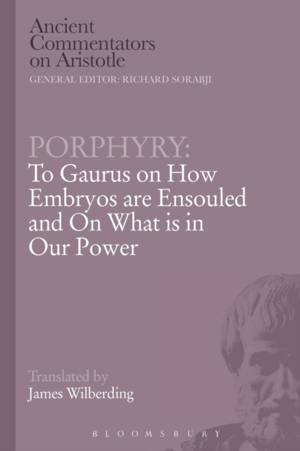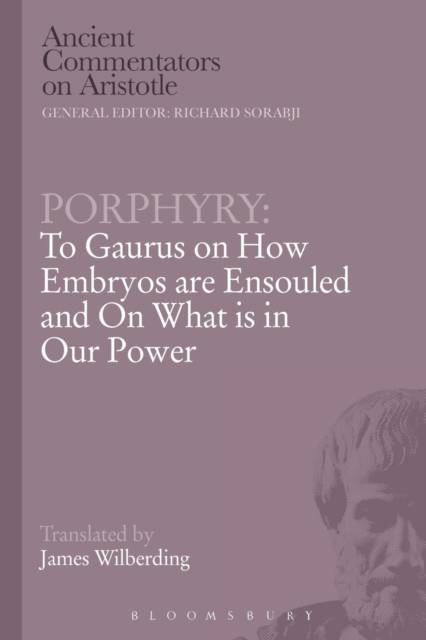
- Afhalen na 1 uur in een winkel met voorraad
- Gratis thuislevering in België vanaf € 30
- Ruim aanbod met 7 miljoen producten
- Afhalen na 1 uur in een winkel met voorraad
- Gratis thuislevering in België vanaf € 30
- Ruim aanbod met 7 miljoen producten
Porphyry: To Gaurus on How Embryos Are Ensouled and on What Is in Our Power
PorphyryOmschrijving
Concerning embryos, Porphyry takes an original view on issues that had been left undecided by his teacher Plotinus and earlier by the doctor Galen. What role is played in the development of the embryo by the souls or the natures of the father, of the mother, of the embryo, or of the whole world? Porphyry's detailed answer, in contrast to Aristotle's, gives a significant role to the soul and to the nature of the mother, without, however, abandoning Aristotle's view that the mother supplies no seed. In the fragments of On What is in Our Power, "Porphyry" discusses Plato's idea that we choose each of our incarnations, and so are responsible for what happens in our lives.
This volume contains an English translation of the two commentaries, as well as extensive notes, an introduction and a bibliography.Specificaties
Betrokkenen
- Auteur(s):
- Vertaler(s):
- Uitgeverij:
Inhoud
- Aantal bladzijden:
- 192
- Taal:
- Engels
- Reeks:
Eigenschappen
- Productcode (EAN):
- 9781472557872
- Verschijningsdatum:
- 10/04/2014
- Uitvoering:
- Paperback
- Formaat:
- Trade paperback (VS)
- Afmetingen:
- 156 mm x 234 mm
- Gewicht:
- 276 g

Alleen bij Standaard Boekhandel
Beoordelingen
We publiceren alleen reviews die voldoen aan de voorwaarden voor reviews. Bekijk onze voorwaarden voor reviews.








